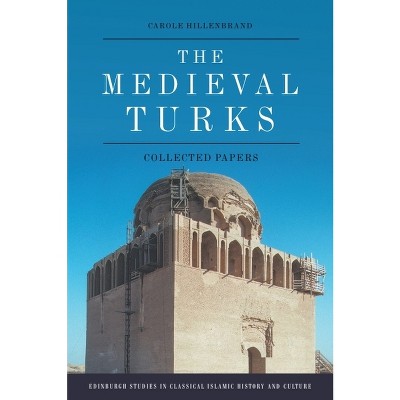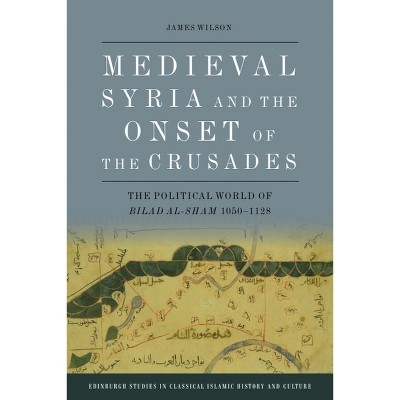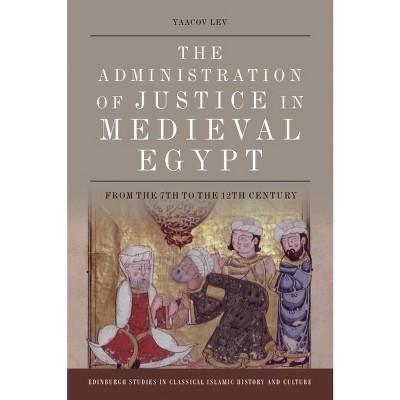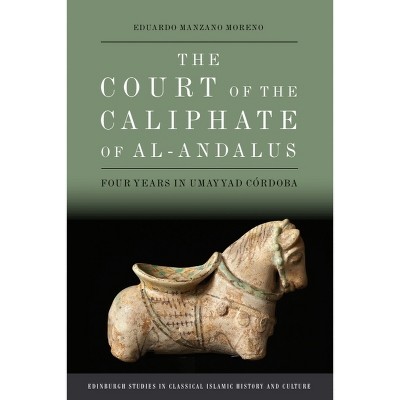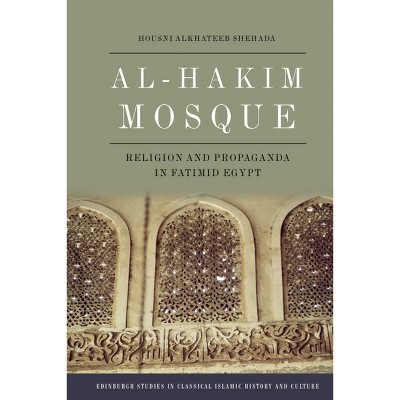A Monument to Medieval Syrian Book Culture - (Edinburgh Studies in Classical Islamic History and Culture) by Konrad Hirschler (Paperback)

About this item
Highlights
- In the late medieval period, manuscripts galore circulated in Middle Eastern libraries.
- About the Author: Konrad Hirschler is Professor of Middle Eastern History at Universität Hamburg (Centre for the Study of Manuscript Cultures) and previously held professorships of Middle Eastern History at SOAS (University of London) and Freie Universität Berlin.
- 624 Pages
- History, Europe
- Series Name: Edinburgh Studies in Classical Islamic History and Culture
Description
About the Book
This book discusses the largest private book collection of the pre-Ottoman Arabic Middle East for which we have both a paper trail and a surviving corpus of the manuscripts that once sat on its shelves: the Ibn ʿAbd al-Hādī Library of Damascus.
Book Synopsis
In the late medieval period, manuscripts galore circulated in Middle Eastern libraries. Yet very few book collections have come down to us as such or have left a documentary trail. This book discusses the largest private book collection of the pre-Ottoman Arabic Middle East for which we have both a paper trail and a surviving corpus of the manuscripts that once sat on its shelves: the Ibn ʿAbd al-Hādī Library of Damascus. The book suggests that this library was part of the owner's symbolic strategy to monumentalise a vanishing world of scholarship bound to his life, family, quarter and home city.
From the Back Cover
Reassembles the books of a medieval Arabic library that are today dispersed around the world In the late medieval period, manuscripts galore circulated in Middle Eastern libraries. Yet very few book collections have come down to us as such or have left a documentary trail. This book discusses the largest private book collection of the pre-Ottoman Arabic Middle East for which we have both a paper trail and a surviving corpus of the manuscripts that once sat on its shelves: the Ibn ʿAbd al-Hādī Library of Damascus. The book suggests that this library was part of the owner's symbolic strategy to monumentalise a vanishing world of scholarship bound to his life, family, quarter and home city. Key Features - Sets out a new approach to the study of Arabic book culture - Edits the most important Arabic medieval book list - Provides a new angle on the history of ḥadīth in the late-medieval period - Reconceptualises the mobility of endowed books - Reproduces the entire catalogue in colour Konrad Hirschler is Professor of Islamic Studies at Freie Universität Berlin. He is the author of Medieval Damascus: Plurality and Diversity in an Arabic Library; The Written Word in the Medieval Arabic Lands: A Social and Cultural History of Reading Practices and Medieval Arabic Historiography: Authors as Actors.Review Quotes
Hirschler's Monument to Medieval Syrian Book Culture demonstrates exceptionally well how rich and revealing at first sight dull traces from the past - in this case, a late-15th century list of books - are, at least if approached with the kind of methodological and heuristic creativity and rigour that have become a hallmark of Hirschler's scholarship.Hirschler develops a carefully and innovatively constructed argument about how complex realities and meanings of intellectual, library and book practices in late medieval Damascus inform at the same time about highly localised phenomena and about their much wider value to understand transformations across time and space. This book is therefore not only a much needed contribution to current understandings of the social and intellectual milieus of late medieval Damascus. It is itself a monument to how a turn to combining history and material philology is substantially refining, and changing, modern imaginations of Middle Eastern and Islamic history in general.--Jo Van Steenbergen, Ghent University
Hirschler's book is an excellent and extremely insightful reminder of how much these centuries-old monuments still influence our scholarly present.Two sets of plates (one documenting Ibn 'Abd al-Hadi's innovations and the second a facsimile of the original manuscript), a bibliography, a general index, and indices of titles and authors round out what can only be described as a book monument to a monument of books and will be of special interest to those interested in the history of books and libraries.--Hirschler, Konrad - Edinburgh University "A Monument to Medieval Syrian Book Culture: The Library of Ibn 'Abd al-Hadi"
Konrad Hirschler's Monument to Medieval Syrian Book Culture: The Library of Ibn ʻAbd al-Hādī is a detailed study of a late medieval Damascene library. The study breaks new methodological and conceptual grounds in the study of Middle Eastern manuscript libraries from the Medieval period to the present.Two sets of plates (one documenting Ibn 'Abd al-Hadi's innovations and the second a facsimile of the original manuscript), a bibliography, a general index, and indices of titles and authors round out what can only be described as a book monument to a monument of books and will be of special interest to those interested in the history of books and libraries.--Hirschler, Konrad - Edinburgh University "A Monument to Medieval Syrian Book Culture: The Library of Ibn 'Abd al-Hadi"
About the Author
Konrad Hirschler is Professor of Middle Eastern History at Universität Hamburg (Centre for the Study of Manuscript Cultures) and previously held professorships of Middle Eastern History at SOAS (University of London) and Freie Universität Berlin. He is amongst others author of award-winning books such as A Monument to Medieval Syrian Book Culture - The Library of Ibn ʿAbd al-Hādī (EUP, 2020), Medieval Damascus: Plurality and Diversity in an Arabic Library (EUP, 2016), The Written Word in the Medieval Arabic Lands: A Social and Cultural History of Reading Practices (EUP, 2012) and Medieval Arabic Historiography: Authors as Actors (Routledge, 2006).
Shipping details
Return details
Trending Non-Fiction






